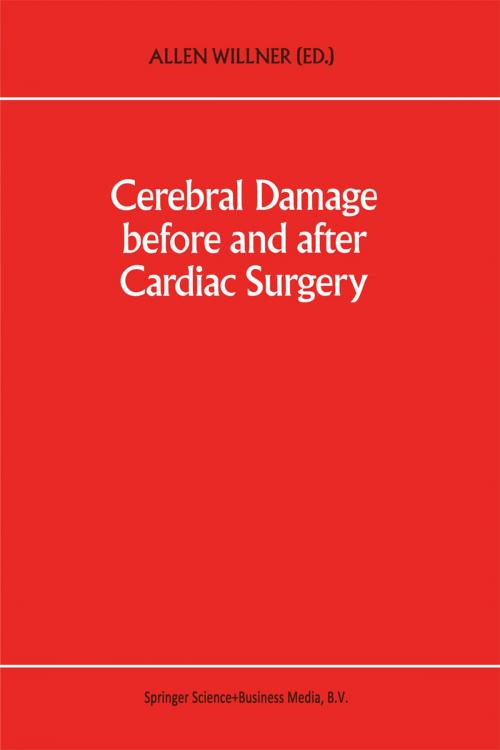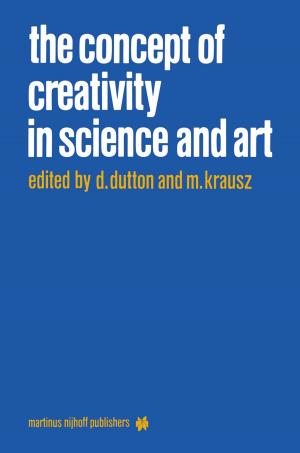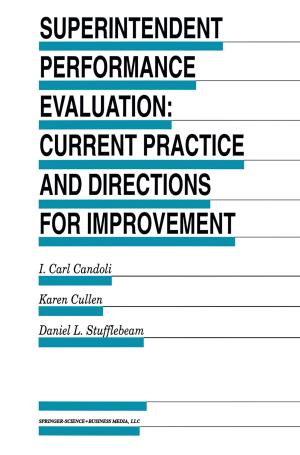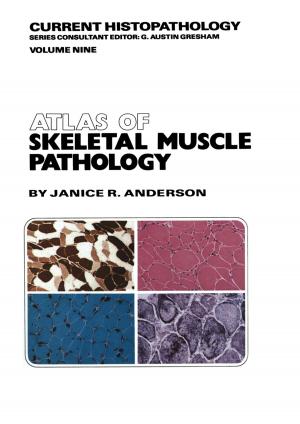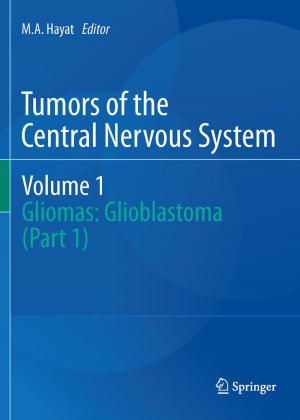Cerebral Damage Before and After Cardiac Surgery
Nonfiction, Health & Well Being, Medical, Specialties, Internal Medicine, Cardiology, Surgery| Author: | ISBN: | 9789401118521 | |
| Publisher: | Springer Netherlands | Publication: | December 6, 2012 |
| Imprint: | Springer | Language: | English |
| Author: | |
| ISBN: | 9789401118521 |
| Publisher: | Springer Netherlands |
| Publication: | December 6, 2012 |
| Imprint: | Springer |
| Language: | English |
Despite numerous reports of cerebral damage in cardiac surgery, the subject has not been given the attention it requires. This book, with a preface by Torkel Aberg, will remedy that situation.
The causes and incidence of pre- and post-operative cerebral damage are considered in the first section. Cardiac surgery patients frequently have preoperative cerebral impairment, not suprising when one considers the impaired circulation from a damaged heart and the brain's prodigious need for blood. Moreover, several perioperative aspects of surgical procedures have been considered as possible causes of cerebral dysfunction, for example: microbubbles, toxic by-products, non-pulsatile blood flow.
The second section describes how imaging techniques (CT scan, MRI, regional cerebral blood flow imaging), and functional assessment techniques. (PET scan, EEG, BEAM and evoked potentials) can be used to measure cerebral damage.
In the third section, psychometric and neuropsychological techniques are used to assess impaired mental abilities (abstract thinking, language, memory, visuo-spatial ability, mental flexibility, attention and concentration).
The final section explores the relationship between cerebral dysfunction and psychopathology (several types of depression, anxiety, and aspects of organic brain syndrome, delirium and dementia).
Despite numerous reports of cerebral damage in cardiac surgery, the subject has not been given the attention it requires. This book, with a preface by Torkel Aberg, will remedy that situation.
The causes and incidence of pre- and post-operative cerebral damage are considered in the first section. Cardiac surgery patients frequently have preoperative cerebral impairment, not suprising when one considers the impaired circulation from a damaged heart and the brain's prodigious need for blood. Moreover, several perioperative aspects of surgical procedures have been considered as possible causes of cerebral dysfunction, for example: microbubbles, toxic by-products, non-pulsatile blood flow.
The second section describes how imaging techniques (CT scan, MRI, regional cerebral blood flow imaging), and functional assessment techniques. (PET scan, EEG, BEAM and evoked potentials) can be used to measure cerebral damage.
In the third section, psychometric and neuropsychological techniques are used to assess impaired mental abilities (abstract thinking, language, memory, visuo-spatial ability, mental flexibility, attention and concentration).
The final section explores the relationship between cerebral dysfunction and psychopathology (several types of depression, anxiety, and aspects of organic brain syndrome, delirium and dementia).
